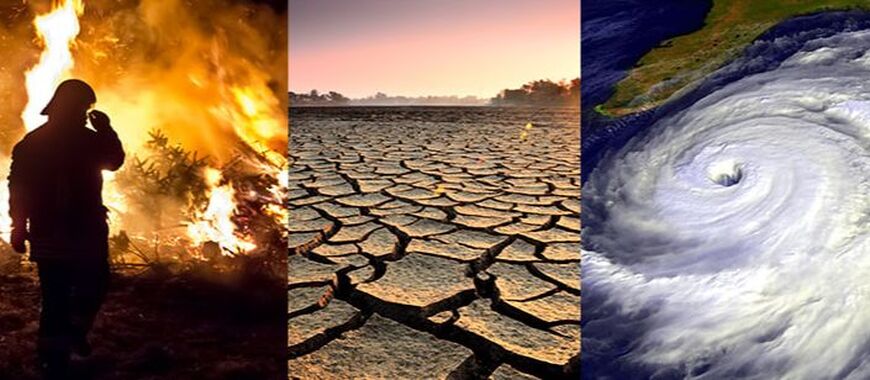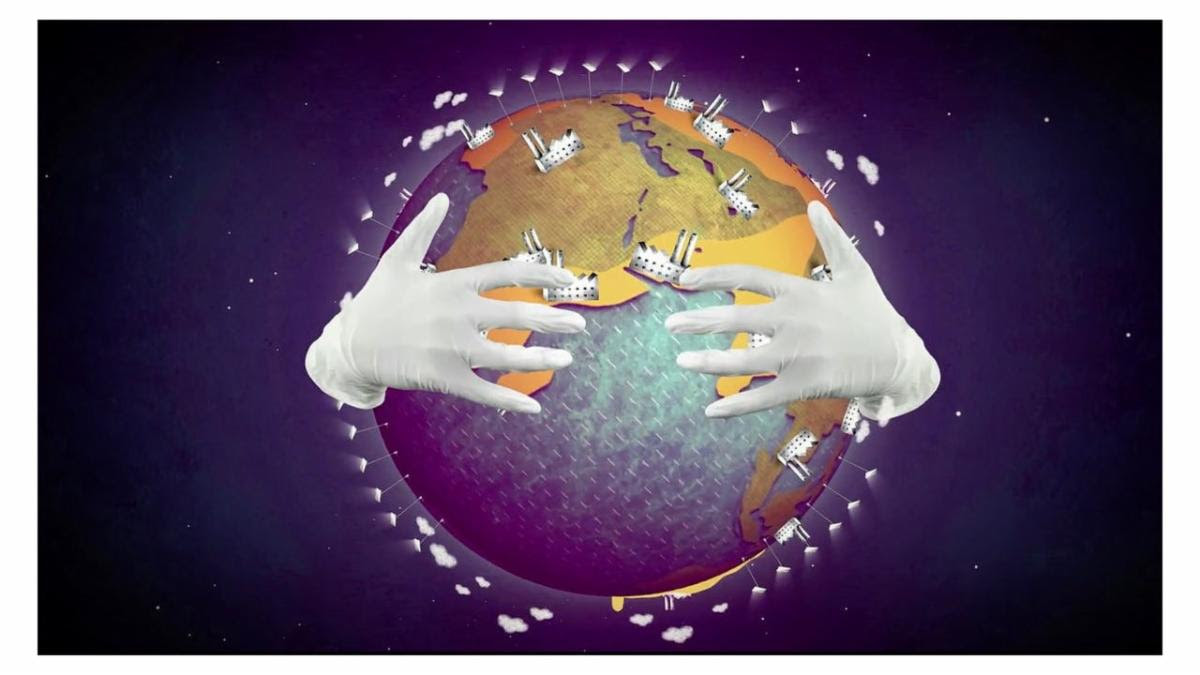The following introduction is an excerpt adapted from an interview of John Gibson, former President and CEO of Halliburton and current Chairman of Tudor, Pickering & Holt, an energy investment and merchant bank in Houston, Texas.
In The Expression of the Emotions in Man and Animals, Charles Darwin writes about his experiences at the London Zoo. When he visited the dangerous puff-adder exhibit, he tried putting his hand on the plate of glass that separated him from the snake. He intended to hold his hand there while the snake struck at it, knowing he was perfectly safe behind the glass. But he found that he couldn’t - he immediately jerked away every time the puff-adder struck at the glass.
There’s a reason why we might jump away from a snake: it's a survival mechanism. We live longer if we jump away. Perhaps this is the appropriate reaction to climate change.
It's not worth debating whether or not climate change is "dangerous" to humanity or not - what matters is that our survivability will be greatly enhanced if we respond to it as though it is real. It’s in our best interest to treat climate change as though it is a venomous snake. If it isn't, so what? We have a better place to live.
The articles in this issue of Energy Today range from the broadest consideration (Climate Change, or Just Weather?) to regional concerns (California, Houston, Southeast Asia). Premium Members also have access to a bonus article about the state of geoengineering and if it is an appropriate (or only) response to the growing problem of the changing climate.
In The Expression of the Emotions in Man and Animals, Charles Darwin writes about his experiences at the London Zoo. When he visited the dangerous puff-adder exhibit, he tried putting his hand on the plate of glass that separated him from the snake. He intended to hold his hand there while the snake struck at it, knowing he was perfectly safe behind the glass. But he found that he couldn’t - he immediately jerked away every time the puff-adder struck at the glass.
There’s a reason why we might jump away from a snake: it's a survival mechanism. We live longer if we jump away. Perhaps this is the appropriate reaction to climate change.
It's not worth debating whether or not climate change is "dangerous" to humanity or not - what matters is that our survivability will be greatly enhanced if we respond to it as though it is real. It’s in our best interest to treat climate change as though it is a venomous snake. If it isn't, so what? We have a better place to live.
The articles in this issue of Energy Today range from the broadest consideration (Climate Change, or Just Weather?) to regional concerns (California, Houston, Southeast Asia). Premium Members also have access to a bonus article about the state of geoengineering and if it is an appropriate (or only) response to the growing problem of the changing climate.
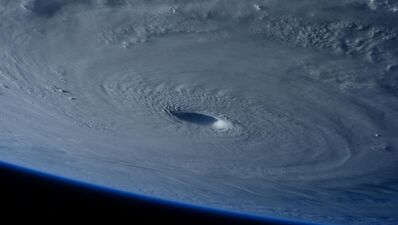
Climate Change,or Just the Weather?
by Scott Johnson
Climate change is not an all-or-nothing proposition.
The steroid molecule isn't responsible hitting the home run, the baseball player is. However, if an average player suddenly begins to smash home-run records, you know the sport of baseball has a problem with players using steroids.
The same is true of extreme weather and climate change.
by Scott Johnson
Climate change is not an all-or-nothing proposition.
The steroid molecule isn't responsible hitting the home run, the baseball player is. However, if an average player suddenly begins to smash home-run records, you know the sport of baseball has a problem with players using steroids.
The same is true of extreme weather and climate change.
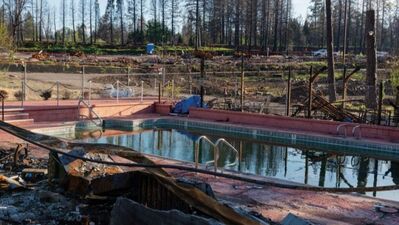
GONE
by Max Arax
"How do you balance the safety risk of someone not being able answer a phone call telling them to flee a wildfire versus turning off the electricity to stop a wildfire that is killing people? How do you balance that?” -- U.S. District Judge (San Francisco) William Alsup, commenting on the PG&E bankruptcy case.
Climate change did not start with the Paradise fire in California, PG&E started it. But climate change increases the frequency and intensifies the consequences of impossible choices, like the one that PG&E had to make in the early morning of November 8, 2018: shut off the power and create a safety risk for a small number of residents, or not shut off the power and possibly have a spark light a wildfire that could kill scores of people?
by Max Arax
"How do you balance the safety risk of someone not being able answer a phone call telling them to flee a wildfire versus turning off the electricity to stop a wildfire that is killing people? How do you balance that?” -- U.S. District Judge (San Francisco) William Alsup, commenting on the PG&E bankruptcy case.
Climate change did not start with the Paradise fire in California, PG&E started it. But climate change increases the frequency and intensifies the consequences of impossible choices, like the one that PG&E had to make in the early morning of November 8, 2018: shut off the power and create a safety risk for a small number of residents, or not shut off the power and possibly have a spark light a wildfire that could kill scores of people?
See also: Wild Fire
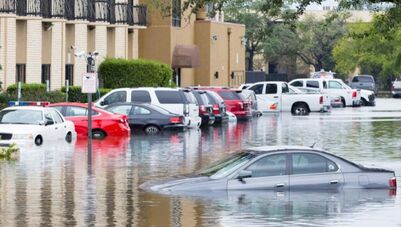
SURGE FLOODING:
Houston-area Surge Flooding and its Effects on Regional and National Security
by Jim Blackburn
A storm surge can destroy buildings, erode beaches and dunes, and damage bridges. Rising days before a storm hits, a surge can cut off escape routes by flooding low-lying roads. It can travel several miles inland and flood estuaries, water tables, and bayous, endangering public health and causing permanent harm to a region's ecological balance.
Storm surges are an often overlooked threat in the battle against extreme weather and the changing climate.
Houston-area Surge Flooding and its Effects on Regional and National Security
by Jim Blackburn
A storm surge can destroy buildings, erode beaches and dunes, and damage bridges. Rising days before a storm hits, a surge can cut off escape routes by flooding low-lying roads. It can travel several miles inland and flood estuaries, water tables, and bayous, endangering public health and causing permanent harm to a region's ecological balance.
Storm surges are an often overlooked threat in the battle against extreme weather and the changing climate.
See also: Dan Kammen - CleanTech Innovation
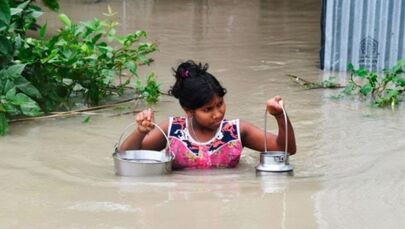
TUG OF WAR:
Air Pollution and CO2 Masks Warming's Impact
by Chelsea Harvey
The annual return of Asia's monsoons is one of nature’s great cycles of renewal. Each summer, the onset of the wet season brings much-needed rain to millions of people across the continent. But scientists have noticed a puzzling trend in recent decades. Monsoons seem to be weakening: the exact opposite of what should be happening in a warming world.
Air Pollution and CO2 Masks Warming's Impact
by Chelsea Harvey
The annual return of Asia's monsoons is one of nature’s great cycles of renewal. Each summer, the onset of the wet season brings much-needed rain to millions of people across the continent. But scientists have noticed a puzzling trend in recent decades. Monsoons seem to be weakening: the exact opposite of what should be happening in a warming world.
See also: As the World Warms
|
PLAN B - Geoengineering:
More Scientists Say It Must Be An Option by Fred Pearce A spate of scientific warnings that the world can no longer delay major cuts in carbon emissions, coupled with a recent surge in atmospheric concentrations of CO2, has left a growing number of scientists saying it’s time to give the controversial technologies a serious look. |
News from the Society
|
The Editors of Energy Today welcome submissions of original articles for publication consideration. Please contact the editorial staff by email with questions or attach the proposed article as a Word document.
|


